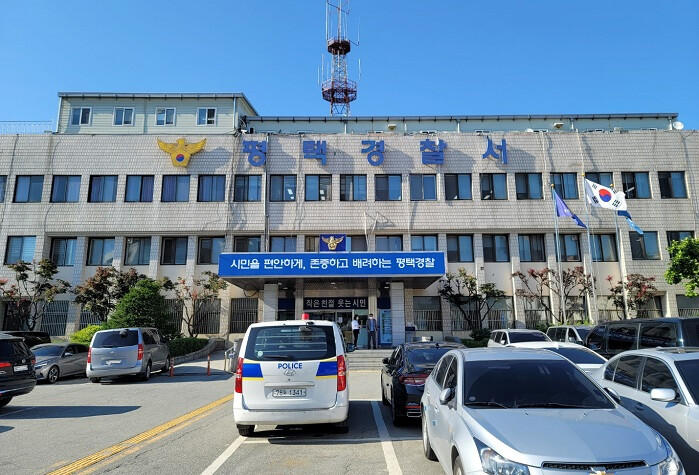
Pyeongtaek Police Station has dismantled an international drug trafficking organization that attempted to smuggle and distribute 27.5kg of philopon, valued at approximately 11 billion won, within Korea. This confiscated amount of philopon is enough for about 917,000 individuals to use simultaneously, with the police calling it "the largest ever interception of drug smuggling," celebrating a significant victory in eradicating drug crime.
The Reality of the Drug Smuggling Organization and the Arrest Process
A total of seven suspects have been arrested in connection with this case, comprising a multinational organization of four Thais, two Chinese, and one Korean. Five of them have been taken into custody for investigation, with further inquiries ongoing for the remaining two. They transported philopon from Thailand and smuggled it into Korea via Incheon International Airport, employing a novel method of concealing the drugs in lotion pump bottles to evade customs. This method is more elaborate and harder to detect than previous concealment techniques, clearly demonstrating the increasingly sophisticated methods used by drug smuggling organizations.
The philopon smuggled into Korea was intended to be distributed using the so-called 'throw-down method'. The throw-down method is a non-face-to-face transaction where sellers and buyers do not meet directly; instead, drugs are hidden in a specific location for the buyer to retrieve. This is a typical distribution method used by drug organizations to make tracing difficult and minimize exposure. It usually involves hiding drugs in secluded places such as apartment milk delivery slots, specific residential areas, or even public restrooms. It's believed they intended to expand their domestic distribution network through this throw-down method.
Upon receiving intelligence about the drug smuggling, Pyeongtaek Police immediately launched an investigation. In particular, they conducted an in-depth undercover operation based on specific intelligence that drug transactions were taking place in a remote mountainous area. After days and nights of persistent stakeouts, the police successfully apprehended two Chinese individuals on the spot as they came to retrieve the philopon. This played a decisive role in the现场逮捕 (on-site arrest) of the drug organization. Based on the evidence and testimonies secured from the on-site arrests, the police conducted an 'upper-line pursuit investigation' to apprehend the entire organization, including sellers and smugglers. Upper-line pursuit is an investigative technique aimed at uncovering the highest-ranking organization in drug distribution, and this arrest represents a significant achievement beyond merely apprehending sellers, effectively rooting out the entire smuggling organization.
The Gravity of Drug Crime and Future Enforcement Enhancement Policy
The large-scale philopon seizure and organizational arrest by Pyeongtaek Police once again highlight the severity of domestic drug crime, which threatens Korea's status as a drug-free nation. The confiscated 27.5kg of philopon is the largest single seizure ever, and had it been fully distributed, the ripple effect on our society would have been unimaginable. Drugs not only destroy individual lives but also inflict severe harm on society as a whole by being linked to violent crimes.
Lim Jong-wan, head of the Criminal Division 2 at Pyeongtaek Police Station, emphasized, "This case confirmed a new smuggling method and, by seizing the largest amount of philopon this year, we preemptively blocked organized drug distribution." This suggests that drug smuggling organizations are increasingly employing advanced methods, underscoring the need for continuous police efforts to counter them.
Taking this case as an opportunity, the police plan to further intensify regular crackdowns on drug crimes to block overseas smuggling routes and eradicate domestic distribution networks. This signifies a commitment to not merely arresting specific organizations but focusing on cutting off the source of drug supply and dismantling distribution networks. Strengthening international cooperation, and expanding intelligence gathering and analysis capabilities are crucial for establishing a proactive response system against drug crime. Furthermore, given that drug distribution is becoming increasingly non-face-to-face and online, strengthening cyber investigative capabilities is also essential. Raising social awareness about drugs and expanding treatment and rehabilitation systems for drug addicts are also vital long-term tasks for creating a drug-free society.
[Copyright (c) Global Economic Times. All Rights Reserved.]






























